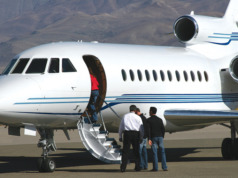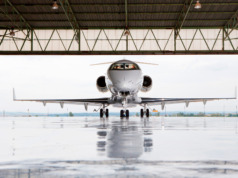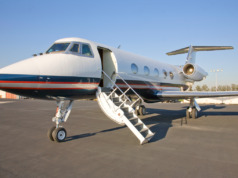Cyber fraud, already at an all-time high, continues to rise. In 2020, the FBI’s Internet Crime Complaint Center received 792,000 reports of cyber crime (a 69% increase from 2019), with losses exceeding $4.1 billion.
Why do aircraft transactions present outsized opportunities for fraud, and what can you do to detect and prevent it?
Billions of dollars are exchanged on aircraft transactions each year, from title and escrow companies to law firms. Coupled with the fact that most communication takes place via email, you get the perfect combination for cyber criminals: lucrative opportunities and an easy target.
In the pre-digital age, fraud came in the form of check scams. Scammers would issue counterfeit checks with a name that wasn’t identical to that of your company, but close enough to be missed easily. They would then use the codes on the check to issue money for the payment and acquisition of goods and services.
Today, fraud looks a bit different, but no less dangerous. Cyber criminals can hack into emails to monitor communication between transaction parties (e.g. escrow agents and either sellers or lenders). They can set up a fake email address that’s one or two characters off from yours to provide false wiring instructions and divert funds.
First-time buyers and sellers of aircraft are most at risk since they’re less familiar with the process. Seasoned industry professionals, who’ve been doing things the same way for the past 20 years, also are at risk if they haven’t yet invested in upgrading systems and security processes. Perhaps you’re storing wiring information on an unprotected iPhone, or you haven’t gotten around to installing malware software. These types of oversights put you at risk.
How To Prevent Fraud
- “Know Your Customer” (KYC). Originally implemented in the financial industry, KYC has expanded to non-financial institutions and the process by which stakeholders identify and verify the companies and persons they do business with, to prevent fraud and mitigate financial crimes (e.g., money laundering and terrorist financing). Most KYC processes today start with an extensive online restricted party screening to rule out companies placed on a government list due to their involvement with organized crime, history of corrupt business practices, or threat to national security. Sometimes, just a simple Google search can be valuable.
- Invest in updated technology. Ensure your computer has a proper security system with updated firewalls that will flag suspicious emails.
- When you see an update alert on your phone, do it! Those iPhone/Android updates often entail security fixes in response to hacking attempts, so it’s worth taking the time to process the update in a timely manner.
- Don’t sacrifice accuracy for speed. When it comes to classified documents such as wiring instructions (or any changes thereto), a layered verification system is essential. One person drafts, another proofs, and a third verifies.
How To Detect Fraud
- Triple check email addresses. Sometimes it’s just one character off, making it difficult to spot.
- Be wary of Gmail or Yahoo accounts. In the corporate aviation world, email addresses from those servers may be a red flag.
- Question any eleventh-hour changes, especially when it comes to wiring instructions.
- Trust your gut. If something feels “off,” pump the breaks. It’s better to delay a transaction than to risk losing a large sum of money.
What To Do If You Suspect Fraud
- Immediately hit pause. This is a fast-paced industry, but sometimes you need to stop, do additional due diligence, and verify information so you’re comfortable proceeding. Don’t give way to pressure to close a transaction.
- Report it to the FBI via its Internet Crime Complaint Center: www.ic3.gov.
Scammers will always pose a threat. As the industry evolves, so do they. However, these techniques are effective at preventing and detecting fraud in order to mitigate risk for all parties involved. BAA
Tracey Cheek is the Marketing Director of The National Aircraft Finance Association (NAFA), a professional association that has been promoting the general welfare of aircraft finance for nearly 50 years.





